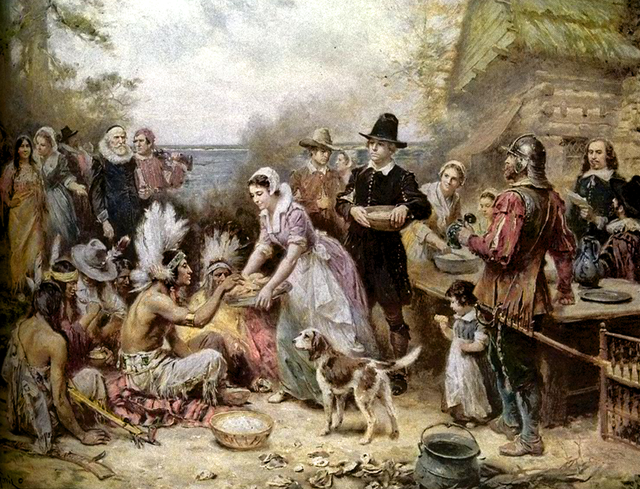
Please Follow us on Gab, Minds, Telegram, Rumble, Gab TV, GETTR
Feast and football. That’s what many of us think about at Thanksgiving. Most people identify the origin of the holiday with the Pilgrims’ first bountiful harvest. But few understand how the Pilgrims actually solved their chronic food shortages.
Many people believe that after suffering through a severe winter, the Pilgrims’ food shortages were resolved the following spring when the Native Americans taught them to plant corn and a Thanksgiving celebration resulted. In fact, the pilgrims continued to face chronic food shortages for three years until the harvest of 1623. Bad weather or lack of farming knowledge did not cause the pilgrims’ shortages. Bad economic incentives did.
In 1620 Plymouth Plantation was founded with a system of communal property rights. Food and supplies were held in common and then distributed based on “equality” and “need” as determined by Plantation officials. People received the same rations whether or not they contributed to producing the food, and residents were forbidden from producing their own food. Governor William Bradford, in his 1647 history, Of Plymouth Plantation, wrote that this system “was found to breed much confusion and discontent and retard much employment that would have been to their benefit and comfort.” The problem was that “young men, that were most able and fit for labour, did repine that they should spend their time and strength to work for other men’s wives and children without any recompense.” Because of the poor incentives, little food was produced...
To read more visit Independent Institute.
Subscribe to our evening newsletter to stay informed during these challenging times!!